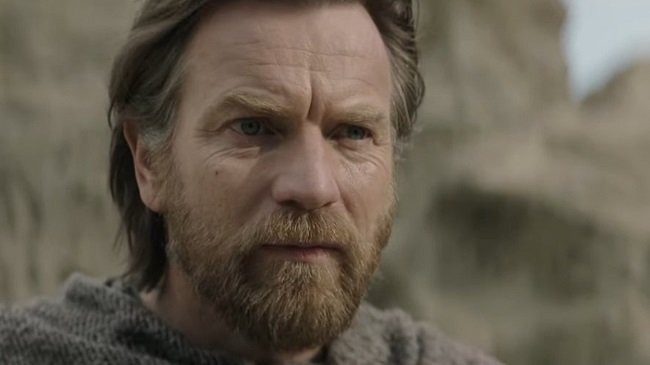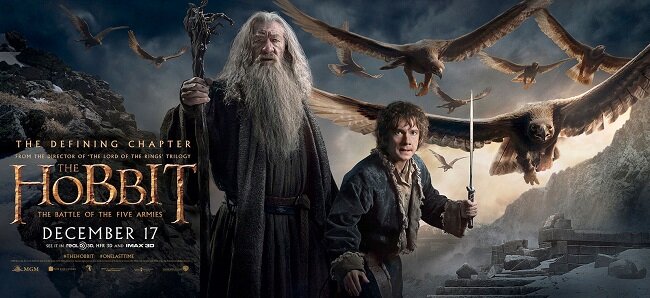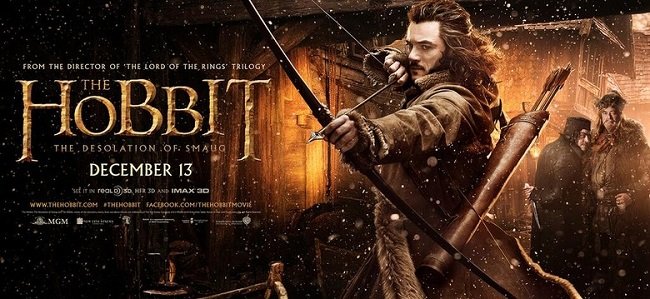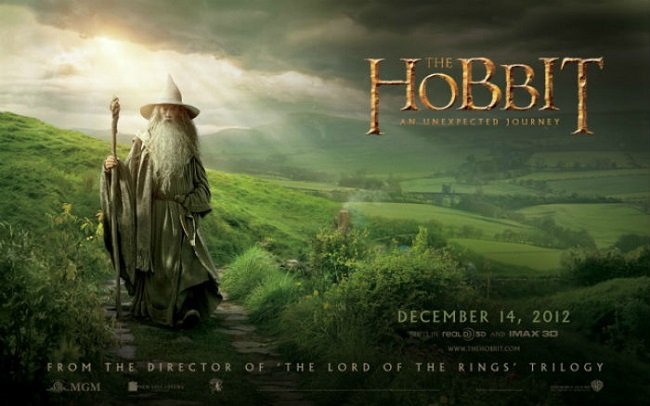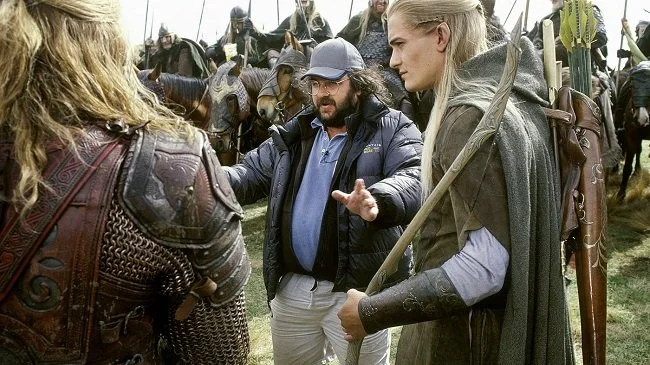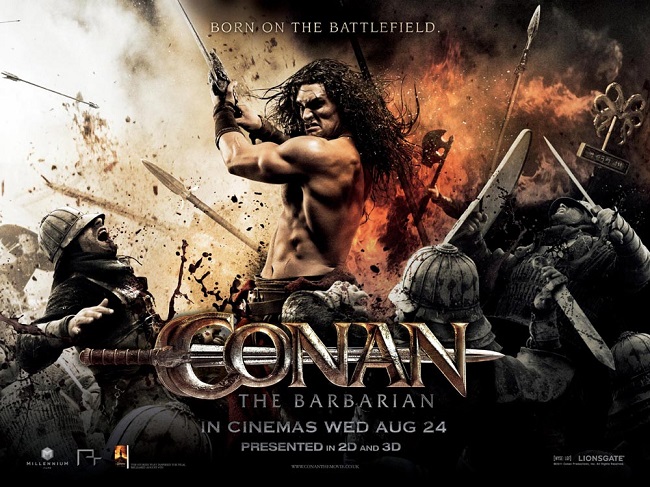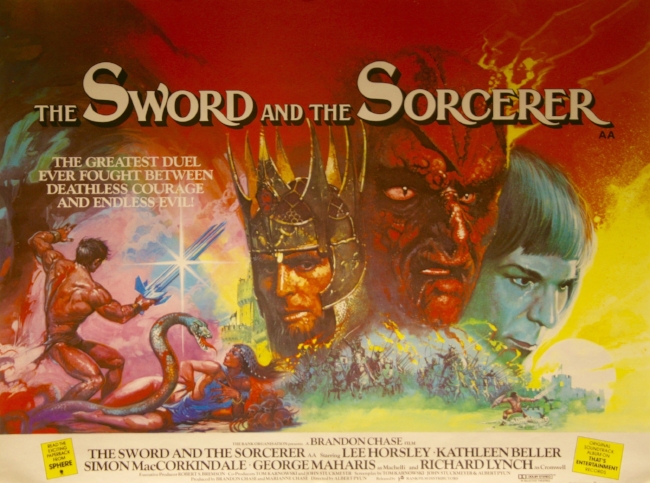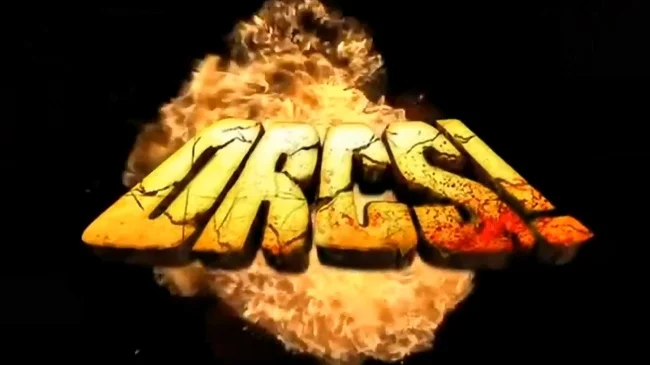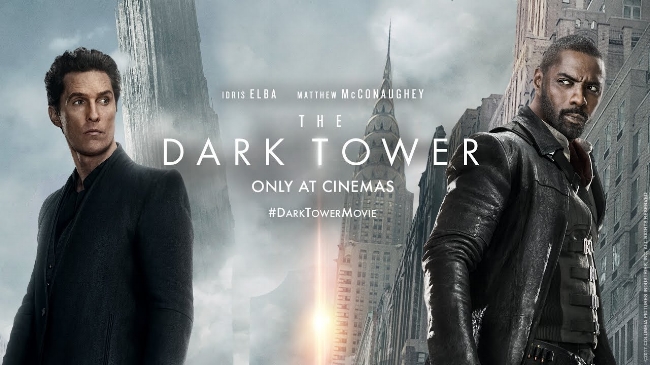The Sword and the Sorcerer (1982)
The early eighties saw an interesting mini boom in the sword and sorcery films. Studios have always been quick to jump on any bandwagon and the growing popularity of the Dungeons and Dragons role playing games showed a potential market. Subsequently, there was a glut of material from the fantasy genre. John Milius’ Conan the Barbarian (1982) remains the benchmark for such movies with its blend of high adventure and philosophical musing. Other films of note include John Boorman’s Excalibur (1981), Dragonslayer (1981), Legend (1985), Krull (1983) and The Beastmaster (1982) to name but a few. All of them have an interesting pedigree with regard to their respective cast and directors. As always there were numerous poor and substandard entries, but we will not catalogue them here.
However, big budget studio productions were not always a guarantee of success at the box office. Low budget independent films could equally compete within this niche market and the more lucrative entries would often followed a tried and tested formula. Take a perfunctorily script loaded with generic genre tropes, some nominally well-known TV actors, include large amounts of sword play and violence, throw in some gratuitous nudity and see if can bluff your way through ninety minutes. The Sword and the Sorcerer exemplifies this model having all these requisite attributes in spades. Surprisingly the results are an engaging, violent, lurid, tongue in cheek, wannabe epic, that dared to start a franchise.
The film starts with a portentous expository narration where we learn that the evil Titus Cromwell (Richard Lynch) is waging war with the good King Richard (Christopher Cary) for control of the kingdom of Ehdan. Cromwell, having been previously defeated by King Richard, uses a witch to raise the ancient sorcerer Xusia of Delos (Richard Moll) from the dead. Cromwell bargains with Xusia, who then unleashes his sorcery on the armies of Ehdan. King Richard’s eldest son dies bringing news of the impending defeat and it is decided to evacuate the remaining members of the royal household. Cromwell, now victorious, takes the opportunity to murder Xusia while he is weak from his witchcraft.
The King's youngest son, Talon is entrusted with his father's tri-bladed sword and leaves to meet with his mother and sisters. He only just escapes after seeing his father put to the sword by Cromwell himself. Matters get worse as he arrives to leave with his family, only to be ambushed by Cromwell's men. His remaining kin are killed and he sustains a serious hand injury. Vowing revenge, he disappears, leaving the kingdom that is rightfully his in the hands of his enemy, who assume he is dead.
Years later, rumours arise on the borders of Ehdan of a mighty warrior with his sword is for hire. It is also revealed that sorcerer Xusia is not dead but has been slowly regenerating over the years and plotting his revenge against the treacherous Titus Cromwell. Meanwhile there is a growing underground movement to depose Cromwell, led Prince Mikah (Simon MacCorkindale) and his sister, Princess Alana (Kathleen Beller), being the nephew and niece to dead King Richard. Among their secret network of supporters is Count Machelli (George Maharis), Cromwell's War Chancellor, who feeds them news from inside the palace. It is not long before all these individuals come together in violent conflict. Who will prevail and win the throne of Ehdan?
As you can see the script for The Sword and the Sorcerer is quite ambitious. Most genre films would not attempt to create such a complex story, with plots, duplicity and intrigue. The execution of these ideas is rudimentary but this was director Albert Pyun’s directorial debut. There are also some attempts to create interesting characters. Talon (Lee Horsley) in particular is supposed to be a charming, irreverent rogue with a ready sense of humour in the Errol Flynn vein. Simon MacCorkindale gives probably the best performance of the film as Prince Mikah, the anguished, dutiful, heir to the throne. Richard Lynch gives a typical flamboyant performance as Cromwell, bringing that uneasy quality he naturally had. Even Kathleen Beller plays Princess Alana, in a suitably feisty manner. Don’t get me wrong, this is far from Shakespeare but there is an inherent sense of fun and the material is suitably camp as well as schlocky, without being disrespectful to the genre.
Special attention should be given to David Whitaker's score. The music is very grand considering the scope of the production, with generous use of strings and brass. It is heavily influenced by classics score from Miklos Rozsa and Erich Korngold. “The Sword and The Sorcerer Overture" is a good example, where we hear the heroic main theme for the first time (See track below). It is when the music gets more light-hearted that it gets really interesting and enjoyable, for example in "The Bordello", where the main theme gets an upbeat and almost humorous rendition. This is a soundtrack that offers a wide variety of styles and moods, and for a modest genre film, is a quite sophisticated.
Despite the low budget The Sword and The Sorcerer has some well-choreographed set pieces and action scenes. Sadly, stuntman Jack Tyree died during the making of the film, when a high fall went wrong. Part of that stunt can still be seen. Fight scenes are perfectly adequate and the editing is also competent improving the overall film. The production design is ambitious, with creative sets, and stylish lighting. There’s a nice homage to Michael Curtiz in one fight scene, were a brazier is knocked over and the action proceeds in slow motion silhouette. The prosthetic work is well handled by now established names like Greg Cannom and Mark Shostrom. Xusia's tomb and full body make up are good examples of the standard of work. There is also a nice head bisection and skin shedding scene. I would also draw your attention to the implausible death on one character who meets his end via a foot peddle driven grind stone. See if you can spot the flaw in the plan.
The Sword and the Sorcerer is what it is. A low budget genre movie, with liberal quantities of sex, violence and humour. It should be judged on its own merits because it isn’t cut from the same cloth as a massive studio production such as Krull. It should also be noted that the film performed surprising well at the box office and was in fact the highest grossing independent movie of 1982. Yet the proposed sequel which was advertised in the end credits, was delayed due to the director’s other commitments. In the meantime, public tastes changed and the sword and sorcery boom was replaced by the next trend. Despite this, The Sword and the Sorcerer has gained cult status in recent years. It’s playful quality and knowing tone can still entertain thirty-six years on. Few other low budget movies from this genre can make such a claim.




